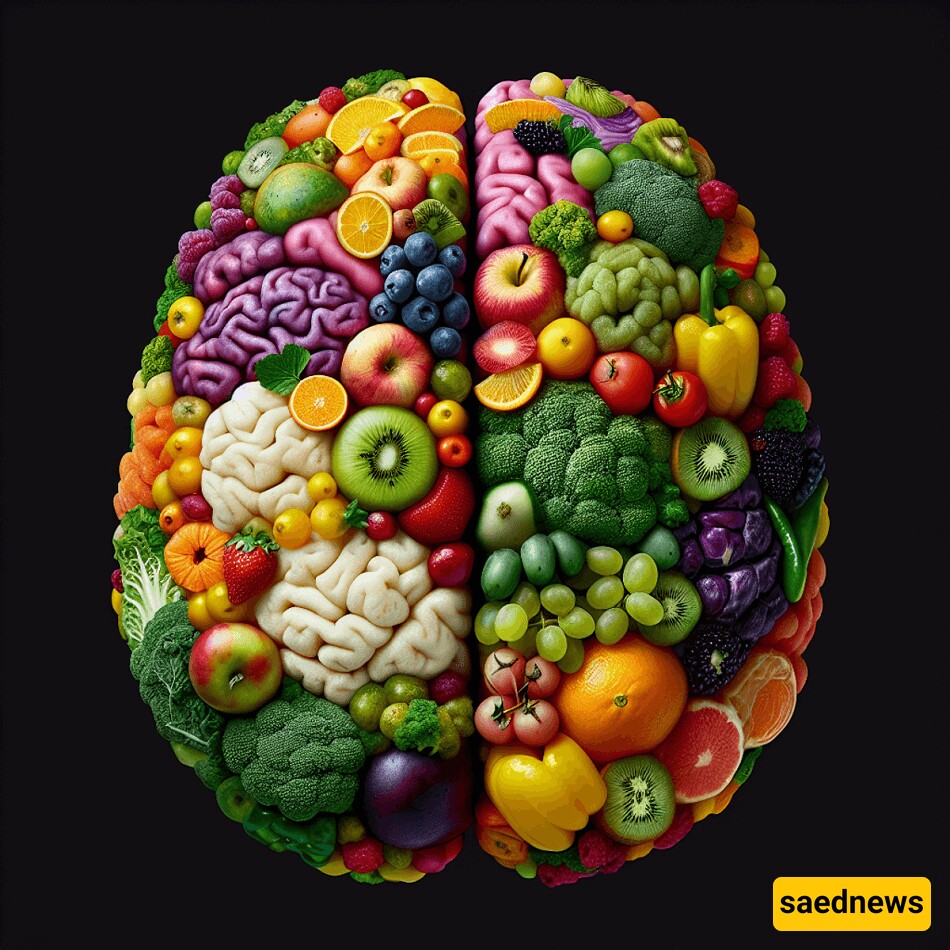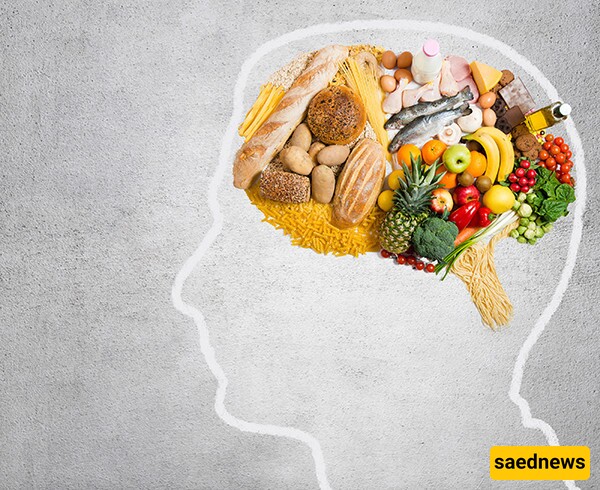SAEDNEWS: Nutrition is essential for maintaining mental health, influencing mood, stress levels, and cognitive performance. A balanced diet rich in key nutrients can promote emotional well-being, while poor eating habits may contribute to mental health challenges.

According to SAEDNEWS, the brain requires a steady supply of nutrients to function efficiently. Foods that provide essential vitamins, minerals, and healthy fats help regulate mood, improve focus, and maintain emotional stability. In contrast, a diet lacking in these nutrients can disrupt brain processes, increasing the risk of anxiety, depression, and cognitive issues.

Omega-3 Fatty Acids
Omega-3s, found in fish like salmon, walnuts, and flaxseeds, are vital for brain cell structure and function. Studies show they help reduce symptoms of anxiety and depression.
B Vitamins
These vitamins are found in whole grains, eggs, and leafy greens. They play a role in producing serotonin and dopamine, which are critical for mood regulation.
Magnesium
This is present in nuts, seeds, and dark chocolate, and it has a calming effect on the nervous system, which helps to alleviate stress and anxiety.
Vitamin D
Often called the “sunshine vitamin,” it supports mood stability and reduces the risk of depression. Sources include fortified foods and sunlight exposure.
Antioxidants
Antioxidant-rich foods, like berries, green tea, and spinach, protect the brain from oxidative stress, which can lead to mood disorders and cognitive decline.
The gut and brain are deeply connected through the gut-brain axis, with the gut microbiome playing a significant role in emotional and cognitive health.
Probiotics (in yogurt, kefir, and fermented foods) encourage a healthy gut environment.
Prebiotics (in bananas, garlic, and onions) feed beneficial gut bacteria, which support the production of neurotransmitters like serotonin.
An imbalanced gut microbiome has been associated with conditions like depression and anxiety.
Refined Sugars and Processed Foods
Diets high in sugar and processed foods can lead to inflammation, mood swings, and gut microbiome imbalances, which negatively impact mental health.
Trans Fats
Trans fats, common in fried and packaged foods, have been linked to increased risks of depression and impaired brain function.
Excessive Caffeine and Alcohol
Overuse may lead to anxiety and sleep disruption even though caffeine can improve alertness in moderation. Similarly, alcohol, though often used to manage stress, can worsen emotional well-being over time.

Mediterranean Diet
This diet focuses on fresh produce, whole grains, nuts, and olive oil. Findings have shown its effectiveness in reducing depression and preserving cognitive health.
Whole-Food, Plant-Based Diets
Rich in antioxidants, fiber, and healthy fats, plant-based diets nourish the brain and support emotional stability. These diets enhance mental clarity and overall mood by limiting processed foods,.
Diversify Your Meals: Include colorful fruits, vegetables, lean proteins, and healthy fats to ensure a variety of nutrients.
Stay Hydrated: Proper hydration is important for mood and focus.
Maintain Regular Eating Patterns: Eating consistent meals prevents blood sugar dips that can lead to irritability.
Practice Mindful Eating: Pay attention to how foods make you feel. Tracking your diet can help identify beneficial or harmful patterns.
A nutritious diet is a powerful tool for the improvement of mental health. Individuals can enhance their emotional well-being and cognitive function by focusing on nutrient-rich foods and reducing harmful ones. Small, intentional changes in eating habits can have a profound impact, which offer a pathway to a healthier mind and body.

